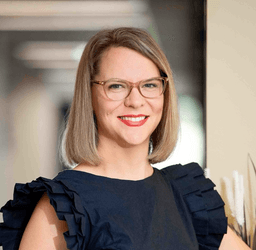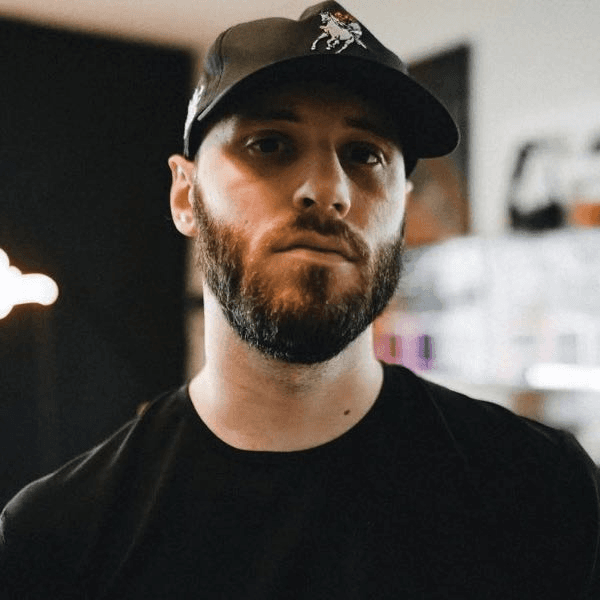How PentaQuest Gamified Employee Engagement Into a Six-Figure Exit


Business Description
Table of Contents
Navigate through the case study sections
Executive Summary
Case Study Content
The Spark Behind PentaQuest
In 2016, psychologist and business graduate Dr. Kerstin Oberprieler noticed that most companies lacked a clear way to reward employees for behaviours that strengthen culture, learning and reputation. While systems existed for tracking billable hours or sales targets, they often left out the softer interactions that build team morale. Drawing on her fascination with human behaviour and her own experimentation with a physical leaderboard at work, she decided to digitize the concept and create a SaaS platform: PentaQuest.
Validating Demand Before Building
Rather than invest time in code straight away, Dr. Kerstin tested her idea through conversations and demonstrations. Colourful leaderboards displayed in offices caught attention. When colleagues walked by and said, “I wish I had this for my team, ” she knew she was onto something. Securing a large government tender that specifically called for a gamified staff platform provided the validation she needed and funded the first version of the software.
Going to Market with Network and Profile
PentaQuest’s early traction hinged on two pillars: leadership profile and strategic tender bids. Dr. Kerstin had already spoken at TEDx and built a reputation as a gamification designer. That visibility opened doors to conferences and enterprise events. Simultaneously, her team monitored public tenders for opportunities. These combined efforts secured the first paying clients and set PentaQuest on a growth path.
Overcoming Challenges
Building a SaaS platform from scratch was new for Dr. Kerstin, and cashflow management tested every decision. She also faced occasional gender bias in tech and had to educate clients on why gamification could move the needle on engagement. A strong co-founder in David Ireland, support from the Canberra Innovation Network and a tenacious team allowed PentaQuest to push through each hurdle.
Keys to Sustained Growth
Clarity of vision kept the team aligned. Dr. Kerstin never lost sight of the platform’s purpose: reward the positive actions that don’t get tracked elsewhere. Regular feedback cycles with clients ensured the software evolved to meet real needs. Active participation in start-up communities surfaced new ideas and best practices. Together, these elements fueled a steady, manageable growth pattern that kept investors and clients happy.
A Strategic Exit Via Flippa
When Dr. Kerstin prepared for maternity leave in 2022, she listed PentaQuest on Flippa. Within days more than 30 buyers registered interest. The platform’s deal structure, global reach and streamlined negotiation process made it easy to vet prospective purchasers. Two weeks before her first child arrived, she agreed to terms with a buyer who shared her values and offered a six-figure price.
What the Journey Taught
Running PentaQuest for six years taught Dr. Kerstin about leadership, resilience and the practical art of behaviour design in business. She built a community of clients and collaborators, experienced the full lifecycle of a start-up and emerged with not just a sale, but a wealth of skills she now applies as a consultant and author.
Where She’s Heading Next
Today Dr. Kerstin works on behaviour change and gamification design projects directly with clients. She’s writing a book that combines her decade of experience with rigorous research, aiming to share proven methods in a format that’s both practical and engaging.
Key Takeaways
- 1Dr. Kerstin tested her gamification concept through physical leaderboards before building software.
- 2Early traction came via TEDx talks, conference presentations and strategic government tender wins.
- 3A clear vision to reward culture-supporting behaviours kept the team focused through technical challenges.
- 4Support from the Canberra Innovation Network and co-founder David Ireland accelerated growth.
- 5Listing on Flippa connected PentaQuest to over 30 potential buyers within days of launch.
- 6PentaQuest sold for a six-figure sum just two weeks before Dr. Kerstin’s maternity leave.
Key Facts
Tools & Technologies Used
Premium Content Locked
Subscribe to access the tools and technologies used in this case study.
Unlock NowHow to Replicate This Success
Premium Content Locked
Subscribe to access the step-by-step replication guide for this case study.
Unlock NowInterested in Being Featured?
Share your success story with our community of entrepreneurs.
Explore More Case Studies
Discover other inspiring business success stories

How Buying a 58K-Follower Instagram Page Earned $2,500 in 72 Hours
This case study shows how Design Joy’s founder, Brett Williams, skipped months of audience building by buying an active ...
Design Joy

From Corporate Life to Six-Figure Exit: How Daniel Galea Scaled and Sold Front Digital for $300K
Daniel Galea, feeling unfulfilled in his role as an estimator, founded Front Digital, a SaaS real estate lead-gen platfo...
Front Digital

How Jeff Wiener Built a 7-Figure Passive Income Empire by Scaling Website Acquisitions
Jeff Wiener transitioned from decades running a telecom company to becoming a portfolio website owner, leveraging Flippa...
Cloudstrike Ventures
